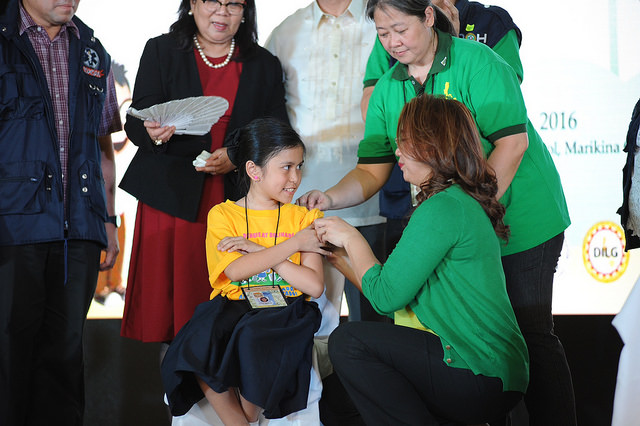An expert group advising the World Health Organisation has recommended the use of the
“Dengue vaccine introduction should be a part of a comprehensive dengue control strategy together with a communication strategy, well-executed and sustained vector control, the best evidence-based clinical care for all patients with dengue, and robust dengue surveillance,” the SAGE said in a statement.
“Decisions about introduction require careful assessment at the country level, including consideration of local priorities, national and sub-national dengue epidemiology, predicted impact and cost-effectiveness with country-specific hospitalisation rates and costs, affordability and budget impact,” the group added.
Meanwhile, the Philippines has already rolled out a school-based immunisation programme. The country’s Health Secretary Janette Garin, a qualified doctor, made history earlier this month when she kicked off the first publicly-funded dengue immunisation campaign by administering a dose of the vaccine to a student at Parang Elementary School in a Manila suburb.

The public vaccine programme has been launched in schools across three regions with the highest rates of dengue fever. Dr Garin said it was “a historic milestone” and the programme would be a legacy for future generations in the densely populated archipelago.
The vaccine, which has also been licensed in Mexico, Brazil and El Salvador, has been available at private clinics in the Philippines since February.
Dr Sally Gatchalian, President of the Pediatric Infectious Disease Society of the Philippines, said health professionals in the country are pleased to have a new role in the fight against dengue fever.
“Doctors and patients have been waiting a long time for this vaccine and are very happy to have a new tool for preventing the disease,” she said. “Physicians always think about prevention; about protecting their patients. We would rather provide protection to outpatients than treat their symptoms when they are admitted to hospital with dengue fever.”
Meanwhile, a new study published in Lancet Infectious Diseases estimates that more than 58 million dengue cases are recorded per year, including more than 13,000 fatal cases. Using data from 2013, the put the cost of dengue fever at almost $9 billion, the bulk of which is attributable to lost productivity and hospitalisation.
Incidence of the disease has increased six-fold since 1990, according to a separate paper published in the same journal earlier this month.
New @TheLancetInfDis: Global economic burden of dengue https://t.co/xUcM61wAVQ pic.twitter.com/hFTfobsWpj
— Lancet Inf Diseases (@TheLancetInfDis) April 16, 2016
In an accompanying comment piece, Dr Mark Jit of the Modelling and Economics Unit, Public Health England, notes that the urbanisation, population growth, climate change and international travel have combined to help the disease to affect more people in more places than ever before.
The arrival of the first dengue vaccine, along with better mosquito control and disease surveillance, is to be welcomed.
Dengue is the most common mosquito-borne viral disease of humans that in recent years has become a major international public health concern, according to the WHO.
Transmitted by the main vector, the Aedes aegypti mosquito, there are four distinct, but closely related, viruses that cause dengue.
“There are four distinct, but closely related, serotypes of the virus that cause dengue (DEN-1, DEN-2, DEN-3 and DEN-4),” says the WHO. “Recovery from infection by one provides lifelong immunity against that particular serotype. However, cross-immunity to the other serotypes after recovery is only partial and temporary. Subsequent infections by other serotypes increase the risk of developing severe dengue.”
Vector control has been the primary method of disease control but this can now be supplemented by vaccination.”




